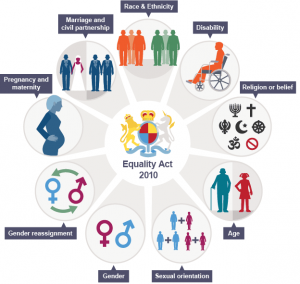By Dr Jule Mulder, Lecturer in Law (University of Bristol Law School).

Dr Jule Mulder’s article ‘Dignity or Discrimination: What paves the road towards equal recognition of same-sex couples in Europe?’ has been published in the Journal of Social Welfare and Family Law. The article explores whether the principle of dignity can help advance the Court of Justice of the European Union’s (CJEU) approach towards same-sex couples’ rights within the EU non-discrimination law framework, considering dignity-based arguments in a comparative perspective.
The European courts’ approach, mostly focusing on the concept of direct discrimination, seems insufficient to ensure the equal treatment of same-sex couples. The comparative experience, successfully invoking the dignity-principle to advance same-sex couples’ rights, challenges us to review the EU non-discrimination law and invites us to reconsider the concept of dignity and its value to foster substantive equality and equal treatment within the EU legal framework. Accordingly, recognising the limited reach of the CJEU current approach that focuses on direct sexuality discrimination only and adheres to the comparator paradigm, the article analyses possibilities to challenge de facto discrimination within the EU legal framework going beyond the concept of direct discrimination. In doing so, the article evaluates the potential of the dignity-centred approach within the context of EU equality law. Hence, the article evaluates whether the CJEU case-law’ limited substantive reach could be remedied by a more detailed engagement with the concept of dignity to provide substantive meaning to the analysis. Ultimately rejecting the usefulness of dignity, the article proposes that a more consistent application of the concept of indirect discrimination could push courts towards legal recognition of rights of same-sex couples. (more…)






